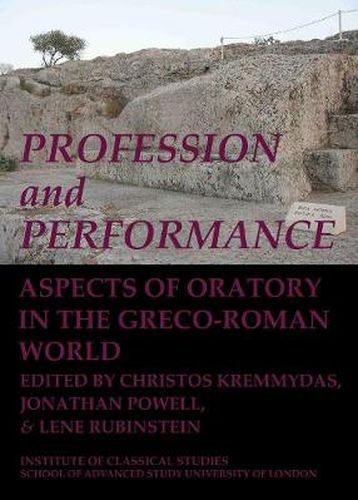Readings Newsletter
Become a Readings Member to make your shopping experience even easier.
Sign in or sign up for free!
You’re not far away from qualifying for FREE standard shipping within Australia
You’ve qualified for FREE standard shipping within Australia
The cart is loading…






This volume brings together six papers relating to oratory and orators in public fora of Classical Greece and Rome.
Edwards and Bers explore aspects of oratorical delivery in the Athenian courts and Assembly, including the demands placed on orators by the physical settings. Tempest examines the conceptions of oratorical competence and incompetence, particularly in respect of performance, as they are implied in Cicero’s criticisms of the rival prosecutor in the trial of Verres.
Papers by Karambelas and Powell look at evidence for the importance of advocacy in the Second Sophistic and the late Roman Empire respectively.
In an introduction, the editors discuss recurrent themes connected with the orator’s competence and performance, while the final paper of the volume, by Lord Justice Laws, reflects on the continuing relevance of rhetoric in the modern, highly professionalised practice of the law in England.
$9.00 standard shipping within Australia
FREE standard shipping within Australia for orders over $100.00
Express & International shipping calculated at checkout
This volume brings together six papers relating to oratory and orators in public fora of Classical Greece and Rome.
Edwards and Bers explore aspects of oratorical delivery in the Athenian courts and Assembly, including the demands placed on orators by the physical settings. Tempest examines the conceptions of oratorical competence and incompetence, particularly in respect of performance, as they are implied in Cicero’s criticisms of the rival prosecutor in the trial of Verres.
Papers by Karambelas and Powell look at evidence for the importance of advocacy in the Second Sophistic and the late Roman Empire respectively.
In an introduction, the editors discuss recurrent themes connected with the orator’s competence and performance, while the final paper of the volume, by Lord Justice Laws, reflects on the continuing relevance of rhetoric in the modern, highly professionalised practice of the law in England.